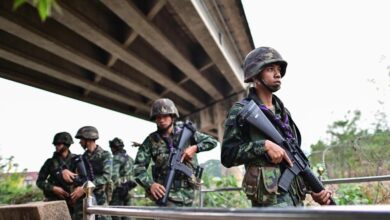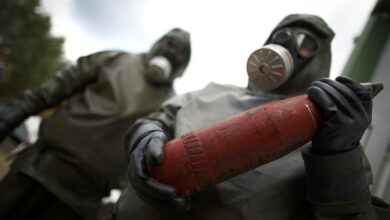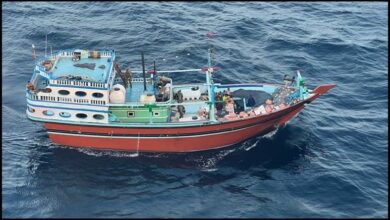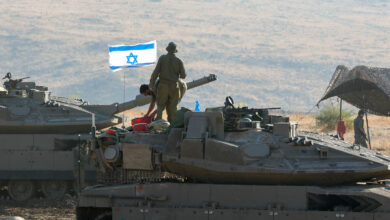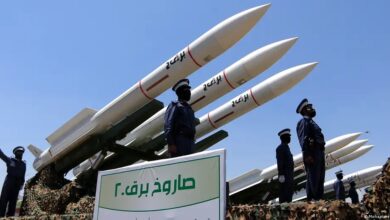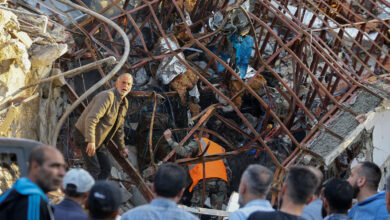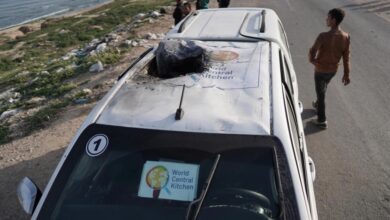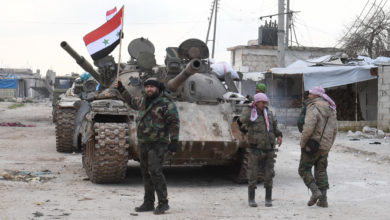Declassified document shows Iran, Iraq and Libya could have South African chemical weapons
US intelligence documents accuse South Africa of carrying out gas attacks, selling chemical weapons abroad
A trove of classified U.S. documents released this week by a non-profit group to mark the centenary of Nelson Mandela’s birth contain some surprising information about Iran’s chemical weapons program.
The non-profit group Property of the People released the documents it said it obtained after years of litigation.
Most of the documents pertain to U.S.-South African relations or South Africa’s transition from racial apartheid to eventual majority rule in 1994. Many only mention that iconic freedom fighter in passing. However, some of the most interesting documents are of more recent vintage and include Mandela’s time as president of the Republic of South Africa.
One U.S. Defense Intelligence Agency document suggests South African chemical weapons technology was passed on to Libya, Iraq and Iran.
“At least one chemist confirmed that South African [chemical weapons] technology was sold to Libya without the knowledge of the Mandela government. Sales of chemical weapons to Iran and Iraq may also have occurred,” one page reads.
Although the document dates to 1997 it is unclear from the file when the alleged transfer took place. During the 1980s Iraq used chemical weapons against the Kurds and Iranian soldiers it fought in the Iran-Iraq War. Scores of Iraqi chemical weapons were destroyed by international inspectors following the 1990-1991 Gulf War, and evidence collected after the 2003 U.S.-led invasion of Iraq suggests that Saddam Hussein’s post-1991 chemical weapons efforts were artisanal at best. Libyan leader Muammar Qaddafi agreed to end his weapons of mass destruction programs in 2003 in exchange for an implicit guarantee his country would not suffer the fate of an international invasion.
Iran began developing a chemical weapons program in response to Iraq’s use of chemical weapons during the Iran-Iraq War. However, Iran later renounced its program when it joined the Chemical Weapons Convention in 1997.
A 2001 CIA report to the U.S. Congress states that Iran maintained its chemical weapons capacity. While the report speculates on Chinese and Russian involvement in the program, it makes no mention of South Africa.
The recently declassified document from 2018 is also noteworthy in that it accuses South Africa’s Defense Forces of using poison attacks against its opponents and states that chemical weapons were used by South African forces against the Mozambique Liberation Front (FRELIMO).
That reference may be to the previously reported use of poison attacks against political operators in Mozambique. South Africa’s Apartheid government accused its enemies of using chemical weapons attacks in Angola and was accused of the same by communist opponents.
It was in the border war that South Africa captured an unknown number of Soviet T-72 main battle tanks, second only to the T-54/55 as the most produced main battle tank since 1945. An intelligence document from 1994 notes that South Africa’s domestic defense industry completed significant upgrades to those tanks such that they were “85 percent” comparable to the capacities of modern (1994) main battle tanks. The document notes Ukrainian and Russian interest in the South African upgrade program.
South Africa is far better known in defense circles for its helicopters than its tanks. Its indigenously produced Rooivalk attack helicopter was at one time considered by defense establishments from Israel to Iran.
Then President Mandela tried to personally coax the Malaysians into purchasing the Rooivalk and the Oryx utility helicopter during a 1997 visit to that country, according to the intelligence files. If the sale had been completed, Malaysia would have been the first country in the ASEAN with a modern attack helicopter capacity but the deal never went through. One sticking point may have been cost of the Rooivalk. As of 2018, South Africa remains the only operator of the Rooivalk. Malaysia placed its first attack helicopter order in 2016, buying six MD530 gunships for its army.
It is not surprising then that some of the documents detail aspects of the South African helicopter industry. One report notes that Argentine forces seized and deployed some South African commercial helicopters for use in the 1982 Falkland Islands War.
Other documents of relevance to national security concern include violence during the transition to democracy in South Africa, descriptions of right-wing militant groups in South Africa and Mandela’s role as a peacemaker seeking to solve conflicts from Burundi to Eastern Timor during his presidency.


